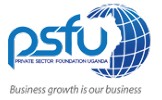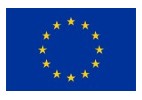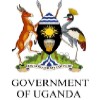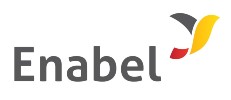Venture capital firms in Uganda are set to benefit from a host of collaborative relationships with key stakeholders who are available to network, exchange ideas and explore co-investment opportunities within the ecosystem to drive sustainable economic growth in Uganda. This was expounded at the first-ever EROVO Impact Investment Workshop that took place on 27th April 2023 at Onomo Hotel in Kampala, Uganda. Over 100 stakeholders, impact investors, banking and financial bodies, development partners and social entrepreneurs in Uganda’s entrepreneurship system attended the workshop. Einstein Rising organized the event in partnership with Ondernemers voor Ondernemer (OVO), Sustainable Business for Uganda (SB4U), and the European Union in Uganda to enhance impact investment.
Addressing the workshop, the CEO of Einstein Rising and East African Manager for OVO, Brian Mangeni, discussed the EROVO pipeline and how it culminated into the EROVO Investment Workshop. The workshops aim to enhance preparedness for entrepreneurs in the pipeline and increase and facilitate more impact investments in the country.
“During our work, we realised that there’s a big issue when it comes to businesses growing from an early stage, growth stage and then scaling up. It was easy for us to identify businesses in the early stage, work with them through incubation and be able to raise funds from angel investors at the early stage. It was also easy to pass them on the overall process where they can get funds to help them grow, but then it wasn’t easy to move on to the scaling up stage,” he said.
He continued: “When SB4U organised the Uganda-EU Forum last year, we attended and saw the companies that were pitching for millions of dollars, but the conversations stopped at them pitching; people liked the businesses but they were not able to go on to secure funding that they were looking for. Why? Because internally, these companies were not ready; a lot of them didn’t understand the valuation of their companies. In our efforts to try and address this challenge – that is; how does someone move from being a growth stage entrepreneur to a scale-up that can actually raise such an amount of capital – the EROVO pipeline was born. So, we want to increase the impact of investments in Uganda by creating an echo system where everything that is required to support the enterprises to get these funds is actually available. The theme of our activities has always been trying to blend the finance that is available locally and what is available from Europe,” he said.
Event partner, SB4U which is committed to promoting trade and investment between Uganda and Europe, was represented by Director Ms. Sarah Kitakule, who said, “We are very excited to be part of this as SB4U because our main objective is to enhance trade and investment between Uganda and the EU. I am passionate about accessing finance, especially for women here, and I would like you to listen very keenly and know what investors are looking for. If people are going to invest in your company, you need to put your house in order. You need to make sure that you are ready for the investors. We appreciate the EU who have provided the resources to enable us to have this partnership.”
Representing the EU delegation in Uganda, Nicolas Renard, the Programme Manager for Private Sector Involvement and Trade emphasised the EU’s commitment in supporting initiatives that promote access to finance, skills development and other critical areas.
He said: “We’ve been working a lot with already established SMEs. We have a portfolio of around 50 million euros on access to finance facilities where we are working with early-stage SMEs in agribusiness, construction and tourism. In the coming months, we will announce a new programme focusing on skilling and job creation funded by the EU and Belgium and implemented by Belgium Development Agency (ENABEL), where we have included a component to support the entrepreneurship ecosystem in Uganda.”
He added: “We’ve been preparing for six months. We have testimonies of successful businesses in Uganda and can showcase the added value by bringing a European perspective to the discussions. One of the things that always comes up is the importance of networks for enterprises of not only local networks and partnerships but also working with international organisations and companies; here, we thought there would be an added value for Uganda to work European organisations.”
The keynote speech was delivered by Thierry Delfandre, the Board Member of OVO who talked about OVO’s approach of working, its success stories and ambitions of proving technical support for readiness investment to more social businesses. He delved into the model of Blended Finance which plays a critical role in catalyzing funding of social enterprises.
He said: “We are here because we believe that entrepreneurship is the future of Africa and Uganda, and that’s what OVO stands for. Our objective is specific on local entrepreneurship where we try to select, guide, finance and monitor. Everybody in this room should be a partner of each other as a supplier or customer of your next-door entrepreneur.”
“As OVO, we understand that there is room for donations, there’s need for affordable loans, and expertise and that is how we are creating impact. It’s clear that all the activities that we filter are filtered by the Private Public Partnership Unit under the ministry of Finance, Planning and Economic Development (PPP) and the UN Sustainable Development Goals. That is where we would like to make a difference. We are focusing on social entrepreneurship and that is why we are offering social loans. Technology is also an extra dimension because it’s part of the future,” he added. The workshop also featured a panel of distinguished financiers such as Stanbic Bank, Equity Bank and aBi Agricultural Finance among others who discussed strategies, opportunities and practical working solutions for implementing the concept of blended financing to boost impact investments in Uganda. Entrepreneurs such as Innovex, Zetu Africa and Rocket Health among others also shared their unique journeys of raising capital both local and foreign. Eight social businesses representing agribusiness, social-health and protection, transportation among others pitched their businesses to the investors present in the room. The workshop was concluded with a networking session to allow participants exchange ideas and collaboration opportunities.




